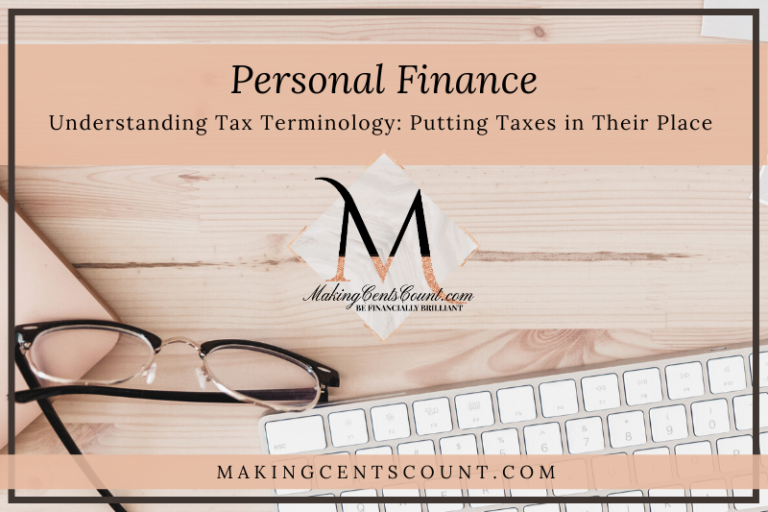Estate Planning Checklist: A 7-Step Guide to Getting Your Affairs in Order
Estimated reading time: 20 minutes
Estate planning is an important step in getting your affairs in order and ensuring that the future of you and your family is secure. The Estate Planning Checklist: A 7-Step Guide to Getting Your Affairs in Order is designed to help you take the necessary steps to get your estate plan in place. You’ll be walked through each step of the process, from understanding what estate planning entails to creating a will and establishing a power of attorney.
Whether you’re just getting started or have already begun putting plans in place, this will give you the information you need to ensure that personal property and your assets are protected and that your wishes are followed after death. By taking the time now to plan for the future, you can ensure that the legacy which you leave behind reflects your values and takes care of those who matter most.
Are you ready to start investing, control and manage your finances, and prepare for retirement? Join our amazing community! You’ll receive exclusive financial tips from Making Cents Count, as well as unlimited FREE access to our resource library full of money-saving tools, and guides.
Help Protect Your Family’s Future With an Estate Plan
Having a secure financial future is critical for the health of your family, and estate planning is one way to help you achieve this. An estate plan helps ensure that your assets are managed in the way that best suits your wishes and protects your family’s future. It can include assigning powers of attorney, designating beneficiaries on life insurance policies, setting up trusts, or creating wills to define how assets should be distributed when you pass away.
While it may seem intimidating to create an estate plan, the process can be simplified with the right guidance. An experienced estate attorney can evaluate your individual situation and provide personalized advice on how to best manage your property and assets. They can also explain strategies such as trust funds or naming guardians for minor children that will help protect your family’s financial security. Additionally, they can provide resources to help you become more informed about the legal and tax implications associated with an estate plan.
How to Simplify Your Estate Planning
Making sure your family has a safe an estate plan does not have to be complicated. By taking the time to consult with an experienced attorney, you can develop a plan that protects your family and ensures your assets are distributed according to your wishes. Ensure peace of mind that your loved ones are taken care of in your absence with the right guidance. A secure financial future is important, but it won’t be overwhelming with the right plan.
Having an estate plan in place is essential to protect your assets and ensure they get distributed according to your wishes, alleviating the probate process. Seeking out professional advice from an experienced attorney, tax advisor and your financial planner is key for helping craft an effective plan customized to meet your goals.
Account for Your Family’s Needs
Include estate planning as an essential aspect of your financial planning to guarantee your loved ones’ security after you’re gone. It means creating a plan that outlines your wishes and how your assets will be distributed among your family. With estate planning, you can also minimize your tax liablity and determine what medical treatments you would or would not want in the event of a major illness or injury.
When it comes to estate planning, it’s essential to consider the needs of your family. You may need to provide for minor children or other close relatives who depend on you financially. You should also think carefully about how you’d like to distribute assets such as homes, businesses, stocks and bonds, life insurance policies, etc., among those closest to you.
Estate Planning Isn’t Just About the Money
It’s important to remember that estate planning isn’t just about money — regardless of what your estate consists of, it’s about providing for those who matter most in life. With careful consideration and proper legal guidance, it’s possible to create an estate plan that meets everyone’s needs while minimizing taxes and ensuring peace of mind for all involved. Create an estate plan that will provide long-term security by exercising patience and dedication.
Though creating an estate plan is a complex task, and it’s important to make sure all of your wishes are recorded accurately. The best way to ensure that your wishes are carried out correctly is with a legally valid document called a will or trust. A will is the most basic type of estate planning, and it’s an important document for everyone to have.
Estate Planning: Do You Need a Will or Trust?
It’s especially important for those who are just starting out in life and haven’t yet accumulated much in terms of personal possessions, assets owned or finances. Create a will to ensure that your assets follow your desired distribution after your passing. Without a will, the state would decide how your assets would be divided (byway of the probate process), which might not be in line with what you wanted.
Getting more involved with estate planning and taking advantage of additional layers of protection for your family is possible with something like a trust. A trust can allow for more complex distribution plans, such as setting up funds for particular beneficiaries (think of minor or dependent children), managing tax liabilities, and even providing instructions on how you’d like certain items to be handled. Trusts also offer more privacy than a will since they’re not part of public records. Setting up a trust provides you with control over your assets and financial affairs after death, benefiting your family both now and in the future.
Working with An Estate Planning Attorney or Tax Advisor
If you’re someone who is concerned about creating a secure financial future for yourself, it may be time to consider working with an estate planning attorney. Estate planning can help you protect your assets, plan for the management of your finances during life and after death, reduce your tax liability, and make sure that your final wishes are carried out according to your specifications. Working with an estate planning lawyer from a referral from a trusted advisor is one of the best ways to ensure that you get the guidance and support you need when navigating the complexities of estate planning.
When selecting an attorney, ask questions about their experience related to wills, trusts, and other legal documents essential to overseeing your estate. Someone who truly understands the legal process in this particular area. Ask how they communicate with clients so that you can be sure they are approachable and understand the individual needs of their clients. You should also inquire about fees — many attorneys will charge an hourly fee or provide packages for all-inclusive rates.
Estate Planning Legal Document(s)
In addition to helping create legal documents such as living wills, health care and power of attorney papers, estate planning attorneys can assist in tax preparation and provide guidance on gifting strategies for individuals who wish to leave money or assets behind to friends or family members. They know inheritance tax laws inside-out, plan taxes skillfully, and minimize taxes while also fulfilling your last wishes. And, an experienced attorney can also help you navigate the ongoing process of probate proceedings if necessary upon your passing.
Taking control of your financial future doesn’t have to be overwhelming or intimidating; working with an experienced attorney (especially through a referral from someone you trust) is one step towards ensuring that everything is in order when it comes time for execution of your last wishes. With careful consideration towards selecting someone who understands your individual objectives, this process can be both invaluable and empowering as you work towards building long-term financial security for yourself and those closest to you.
Appointing the Right Executor
Appointing the right executor is an important decision that can have lasting implications. After all, this person will be responsible for carrying out your wishes as expressed in your will. However, don’t let the fear of making the wrong decision keep you from taking action. With proper planning and research, you can easily select an individual who will serve your needs well.
When choosing an executor, consider the complexity of your estate and the type of assets it includes. Your executor should be familiar with taxes, investments and other financial matters so they can properly manage affairs after your death. Consider selecting someone with a legal or accounting background since they are more likely to understand these complexities. Also, be sure to choose someone who is trustworthy and reliable – someone you can depend on to carry out your wishes when it matters most.
Finally, remember that selecting an executor does not mean tying yourself to this individual forever. If circumstances change over time or if you become dissatisfied with their performance, you are free to change the executor at any point by updating your will accordingly. Appointing the right executor doesn’t have to be scary – just make sure to take some time and do your research before making a decision.
Living Will (Advance Healthcare Directive)
Living wills, also called advance health care directive are an essential part of estate planning. It is important to have a living will in place (even with modest assets) should you ever become too ill to make your own medical decisions. It’s important to note that it can avoid a lengthy court process as well. A living will appoints someone you trust to act on your behalf and ensure that your wishes regarding medical care and health care decisions are respected.
Creating a living will is not something you should do on your own; it requires the help of an experienced attorney. The process doesn’t need to take long or be expensive – it simply involves providing information about what kind of medical care and interventions you would like (or decline) if faced with a serious health issue. Your attorney can provide you the guidance so that your living will follows the state laws in which you live and meets all requirements.
A Living Will: The Most Important Thing Not to Forget
When creating a living will, clearly state your wishes in writing and ensure their legal validity. To ensure proper execution of your advance care directive, an experienced estate planning attorney can guide you through the necessary steps beforehand. Don’t let time constraints stop you from making this essential decision – consulting with an estate planning attorney now can give you peace of mind for the future.
Living Trust
A living trust is a legal arrangement that allows an individual’s estate to transfer their assets to a trust during their lifetime. This legal document is drafted while the individual is alive and can be changed or revoked at any time, allowing the individual to maintain control over their assets while still benefiting from the trust during their life and ensuring that their assets are distributed to their beneficiary designations according to their wishes after their death.
Anyone who wants to safeguard their assets and fulfill their wishes after they pass can benefit from a living trust. For individuals with large estates that hold significant financial assets, the benefits of having a living trust are numerous.
What a Living Trust Protects
Having a living trust can help protect your finances from going through probate court, which can be expensive and stressful. It also allows you to specify how you would like your assets distributed after your death without having to rely on the state’s default rules. In addition, it will help keep your affairs private as it does not become part of the public record like wills do. This way, you can be sure that only those who should know about your estate will have access to it.
How a Living Trust Offers Flexibility
You can change or revoke a living trust anytime while you’re alive, making it more flexible than a will. If you need to make changes to a will, you must go through probate court, which could be costly and time-consuming. So, a living trust is a good option if you want more control over your assets. Additionally, if you experience any changes in your life circumstances such as marriage or divorce, then you can easily adjust the provisions of the trust accordingly so that they continue to reflect your current desires and wishes for asset distribution.
Creating a living trust is an excellent way for anyone with significant assets to protect and direct their wealth after death. It brings peace of mind, especially if life throws unexpected curveballs.
Healthcare Power of Attorney
Healthcare power of attorney is an important part of planning for your future and ensuring that your wishes are fulfilled in the event that you are unable to make decisions on your own. If you’re on your own, it’s especially critical to establish a healthcare power of attorney so that someone is legally able to make decisions regarding your medical care when needed.
Having a healthcare power of attorney allows you to determine who will be allowed access to confidential information about your health, as well as who will have the legal authority to make decisions about treatments or other forms of medical care. This can provide assurance that if something happens, the person making these decisions is someone whom you trust and respect. It also gives peace of mind that even if you can’t communicate directly with doctors, someone can still speak on your behalf.
Alleviating Family Conflicts
In addition, having a healthcare power of attorney also helps avoid potential family conflicts by making clear who will deal with issues related to medical care and finances. This can help alleviate stress for both yourself and other family members during difficult times, knowing there is an individual responsible for making sound choices with regards to treatment plans or other related items.
Looking ahead, taking the time now to plan ahead and set up a healthcare power of attorney is an important step in preparing for any eventuality. When you are unable to express your wishes directly, a person can legally act on your behalf according to your desires with empowerment.
Financial Power of Attorney
A financial power of attorney is an important part of planning for the future. It allows individuals to select someone they trust—their “agent”—to handle financial matters on their behalf in the event that they become incapacitated or unable to manage their finances personally. Don’t leave anything to chance!
When it comes to selecting an agent and creating a financial power of attorney, it’s crucial to remember that this is a legally binding agreement. So, you’ll want to take great care in choosing the right person for the job. Someone knowledgeable and experienced in handling financial matters and managing investments is ideal. Don’t forget to give the document’s details and terms thorough consideration too!
Financial Affairs
Don’t overlook setting up a financial power of attorney if you want to take charge of your financial future. Doing so now could save time, money, and stress down the road should an individual become unable to manage their own finances for any reason. By taking time to consider and prepare now, you can rest assured that you will honor your wishes no matter what the future holds.
Estate, Inheritance, and Gift Taxes
Estate, inheritance, and gift taxes can intimidate and confuse many people. But understanding how the taxes work is important for creating an estate plan that works best for you. In 2023, the federal estate tax rate is 40% for estates over $11.7 million. If a married couple owns assets jointly, they can exempt up to $11.7M from federal estate taxes in 2023 – twice the amount that would be available to an individual. So, if one spouse passes away, the surviving spouse can exempt that entire sum from tax. There are also exemptions for gifts and inheritances; in 2021, an individual can receive up to $15,000 per year per person without incurring a gift tax.
It’s important to note that many states have their own rules when it comes to estate taxes and inheritance laws, so it’s important to review the details of your state of residence before moving forward with any plans. Additionally, having a well-rounded estate plan that involves wills and trusts can help minimize any potential tax liabilities — especially as we move through 2023 and beyond.
Planning for Estate Taxes
As a financial expert, I am here to say that planning for estate taxes can feel like a daunting task. Proper planning now can safeguard your legacy and intentions, without creating an undue financial burden for your family.
When someone passes away, the transfer of assets such as a house or other real property from one person to another might result in estate taxes being paid.The tax rate is typically based on the asset’s value, with higher values resulting in higher rates. When it comes to planning for your future estate taxes, there are several things that you should consider now in order to reduce your potential liabilities later.
Estate and Inheritance Taxes
First and foremost, consult with a qualified estate attorney who can help you set up an effective trust structure which can minimize future estate tax liabilities. In order to distribute assets upon death, one may establish trust for each beneficiary – for example, children or grandchildren – or create an umbrella trust document that outlines the distribution plan. With a trust document, you can set up gifting provisions that make it easier to transfer assets between generations without incurring additional taxation (known as “skip transfer tax”).
You should also review current state and federal laws regarding estate taxes and inheritance laws regularly in order to stay informed about any changes that may affect you. While currently estate taxes are not applicable when transferring assets from one person to another upon death unless those assets exceed $11 million per person or $22 million per couple, this threshold may change over time so it’s important for you to stay informed of any changes and update your plan accordingly.
Meet Your Estate Planning Team
Finally, work closely with your financial advisor and tax advisor throughout the process of developing an effective estate plan which meets both your needs and those of your beneficiaries. These experienced professionals can help guide you through the process of creating an appropriate plan and advise you on strategies best suited for minimizing potential liability now and into the future.
Don’t leave it up to chance! Take action now to preserve your legacy and spare your loved ones from the financial and emotional burden of unnecessary court costs down the road.
Take Note of Your State’s Estate Tax Laws
Each state has their own estate tax laws for 2023 and beyond that can vary significantly from one another. After someone’s death, the transfer of their property is subject to estate taxes, which vary based on the value of their estate. While many states are phasing out their estate taxes over time, some states still impose such taxes.
For example, in California, there is an exemption of up to $3.5 million with a maximum tax rate of 16%. Similarly, in Illinois there is an exemption of up to $4 million with a maximum tax rate of 16%. However, New York offers much less generous tax benefits than other states with an exemption of just over $1 million and a maximum tax rate of 16%.
These States Have the Most Attractive Estate Tax Policies
In contrast to these high-tax states, Texas and Alaska offer arguably the most attractive estate tax policies: they do not impose any estate taxes at all! In addition, several other states have much lower exemption levels and impose more moderate maximum rates than California or Illinois. It’s important for individuals concerned about their particular state’s estate taxes to research the specifics before making any decisions.
Overall, each state’s laws regarding estate taxes can vary greatly depending on a variety of factors including exemption amounts and maximum rates. By doing adequate research beforehand, individuals can make sure they are taking advantage of the best available options for them in order to minimize their overall tax burden in 2023 and beyond.
Cutting the Tax Effects of Charitable Contributions
It’s important to know that charitable contributions can have some significant tax effects. Firstly, it’s important to note that donations made to registered charities are eligible for a tax deduction on your taxable income in the year of contribution. Depending on your marginal tax rate, this could result in a substantial reduction in the taxes you owe for the given year.
You also benefit from carrying forward unclaimed charitable donations from the current year and apply them to your future income. This is especially useful if you find yourself in a higher tax bracket due to additional earning or other factors.
Donating Non-Cash Items
Consider potential capital gains benefits by donating non-cash items like stocks or mutual funds. When donating such items, you can deduct their fair market value at the time of donation from your final income and avoid paying taxes on any capital gains accrued since purchase or acquisition.
In sum, charitable contributions can offer a great opportunity for tax savings both in the present and into the future – so it’s definitely worth considering them when developing your overall financial strategy!
Estate Freezing
Though an interesting term, estate freezing is an important estate planning tool that can help to reduce the amount of taxes owed when transferring wealth to future generations. This is a strategy that allows individuals to transfer assets at today’s lower value, locking in the current capital gains tax rate and reducing the burden on their heirs.
By freezing an estate, wealthy individuals can transfer their assets at today’s lower value and lock in the current capital gains tax rate. In this way, they are able to pass along more wealth with less tax burden on their heirs since they will not have to pay taxes on any additional appreciation that occurs over time. Furthermore, estate freezing makes it easier for heirs to manage assets by allowing them to dole out shares or portions of the frozen asset rather than having to deal with a large lump sum.
Preserving Your Legacy
Estate freezing also helps preserve one’s legacy by enabling individuals to continue controlling certain assets even after they have passed away. Those administering the estate can maintain maximum control over managing and distributing assets without extra taxes on appreciation by using this technique.
In summary, estate freezing can be an effective way for wealthy individuals looking for ways to pass along as much of their wealth as possible while minimizing taxation for their heirs. Many people choose this option for estate planning strategies because it lets them lock in current values, and offers greater control over managing and distributing assets.
Weigh the Value of Professional Help
Collaborating with a team of experts in estate planning, taxes, and financial planning is invaluable. Rest assured, they always have your best interests in mind! When weighing the value of professional help from a team of experts, there are several factors to consider. First off, consulting with a seasoned advisor and attorney who possess experience in the field can ultimately save you both time and money.
Having experts on your team can help remove some of the guesswork associated with estate planning decisions and tax implications, allowing for more informed choices. Moreover, having a team of professionals means they cover all aspects thoroughly—leaving no stone unturned and giving you peace of mind! Furthermore, the costs associated with using such services may be less than anticipated when you consider that mistakes made in either area can be incredibly costly down the road.
Estate Planning: Your Trusted Advisors
When you hire a professional, they ensure accurate execution of your wishes while identifying potential issues beforehand, giving you peace of mind. It’s a great way to achieve peace of mind with a team who is approachable and informative. The expertise they offer provides measurable benefits far beyond what one individual alone could provide. Rest assured that you have all bases covered by working with a trusted team of professional advisors specializing in estate planning, taxes, and financial planning. So, you don’t have to worry about any unexpected surprises down the road.
Conclusion
With a comprehensive estate planning checklist like this. it’s never been easier for everyone to have a secure financial future. Taking the time now to get your affairs in order could make all the difference in how smooth things go when life doesn’t go as expected.
If working on your finances is one of your goals right now (or, maybe it’s been a goal for some time), I suggest starting with the Making Cents Count Financial Organizer.
Our financial organizer is the robust answer you need. The organizer is our DIY financial services option, providing you with the tools to eliminate financial overwhelm.
In the exclusive Making Cents Count Financial Organizer, you’ll get:
- Clear strategies to get your finances under control
- Processes to organize and streamline your investments
- Guidance to track your legal documents, tax information, and permanent records
- Markers to know when you should meet with an attorney to establish a will or trust
- Templates, checklists, and step-by-step actions
- Insights on the financial must-haves to build a secure future
- Detailed How-To Guide for optimal results
If you want financial confidence, grab the Financial Organizer, and get results that fit *your* lifestyle!
Making Cents Count Financial Organizer
Once you get your budget rolling, check out my post on 6 Simple Steps to Get Financially Organized. This post also includes a helpful checklist available in my Resource Library (free to access).
Admittedly, this particular checklist has a larger-scale focus on your overall financial picture, but I genuinely feel that getting your finances organized is essential.
I’m so excited to invite you to join our Financial Success Society Waitlist! Our enrollment opens soon (so don’t miss a chance to get on the notification list). Your journey to financial success is unique and with this exclusive membership, you’ll receive the guidance you desire, enabling you to move financially forward, no matter where you are in your financial journey. At Making Cents Count, we offer an array of outstanding products and services to help you get control of your finances so they won’t control you!







